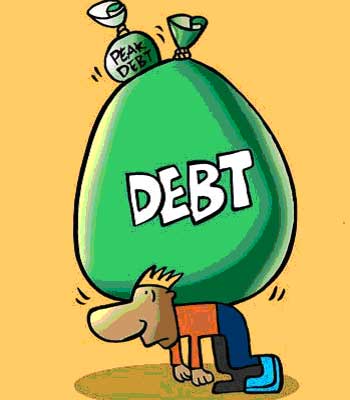Hemant Rustagi
For most investors, a major cause of worry is their equity fund portfolio. As the stock market is often volatile, investors find themselves on their toes and worried.
Since the focus remains on equity, the debt part of the mutual fund portfolio usually gets neglected.
Moreover, as debt and debt-related instruments are perceived to be 'safe', not many investors feel the need to monitor their debt fund portfolio regularly.
By doing so, they not only expose themselves to the risks associated with the impact of interest rate movements on the portfolio, but also compromise in terms of returns that they may earn from it.
As a debt fund investor, it is important for you to know that bond prices move inversely to interest rates.
. . .
Don't ignore your debt portfolio
When interest rates go up, bond prices go down and when interest rates go down, bond prices go up.
Since movements in interest rates can have a significant impact on a debt portfolio, there is a need to monitor it, not only to realign it in line with the changing interest rate scenario, but to protect gains and improve the overall performance.
Remember, although monitoring is crucial, it is equally important to make the right investment decisions.
The key is to manage credit and duration risk efficiently.
. . .
Don't ignore your debt portfolio
Among debt funds, a major differentiator is the maturity duration of the portfolio.
Each category of debt funds has a different risk profile and commensurate return potential.
Longer the maturity duration of the portfolio, greater the impact of an interest rate change.
Similarly, funds that have shorter maturity durations such as ultra short-term debt funds and short-term funds experience lesser impact of the interest rate movements than medium-term debt funds.
Therefore, if you want to invest for a shorter duration, say more than three months, but less than six months, your focus should be on investing in ultra short-term category of funds.
. . .
Don't ignore your debt portfolio
Similarly, if your time horizon is six-twelve months, short-term debt funds would be apt for you.
In case you have a time horizon of one year or more, the toss up could be between medium-term debt or similar funds and debt-oriented hybrid funds.
As is evident, if you are a debt fund investor, you need to tread carefully.
Keep an eye on the emerging rate scenario, as it has a direct impact on the kind of returns you can get from these funds.
For example, in a high or rising interest rate scenario, fixed maturity plans will give you better returns than medium-term debt funds.
. . .
Don't ignore your debt portfolio
FMPs aim to generate predictable returns and, at the same time, protect you from interest rate volatility.
While structurally FMPs are akin to fixed deposits, the tax efficiency makes these a better option for investors in higher tax brackets.
If you have invested in FMPs over the last six months or so, you can expect much better returns as compared to other options in the debt fund category.
On the other hand, in a falling interest rate scenario, medium-term debt and gilt funds perform better than FMPs.
. . .
Don't ignore your debt portfolio
Apart from investing in the right funds and actively monitoring the portfolio, it is equally important to opt for an appropriate option, that is, dividend payout, dividend reinvestment and growth.
For example, investors in a higher tax bracket can benefit from tax efficiency by opting for a dividend payout or dividend reinvestment, in case investments are to be made for a time horizon of less than 12 months and a 'growth' option for investments to be made for more than 12 months.
The writer is CEO, Wiseinvest Advisors








article